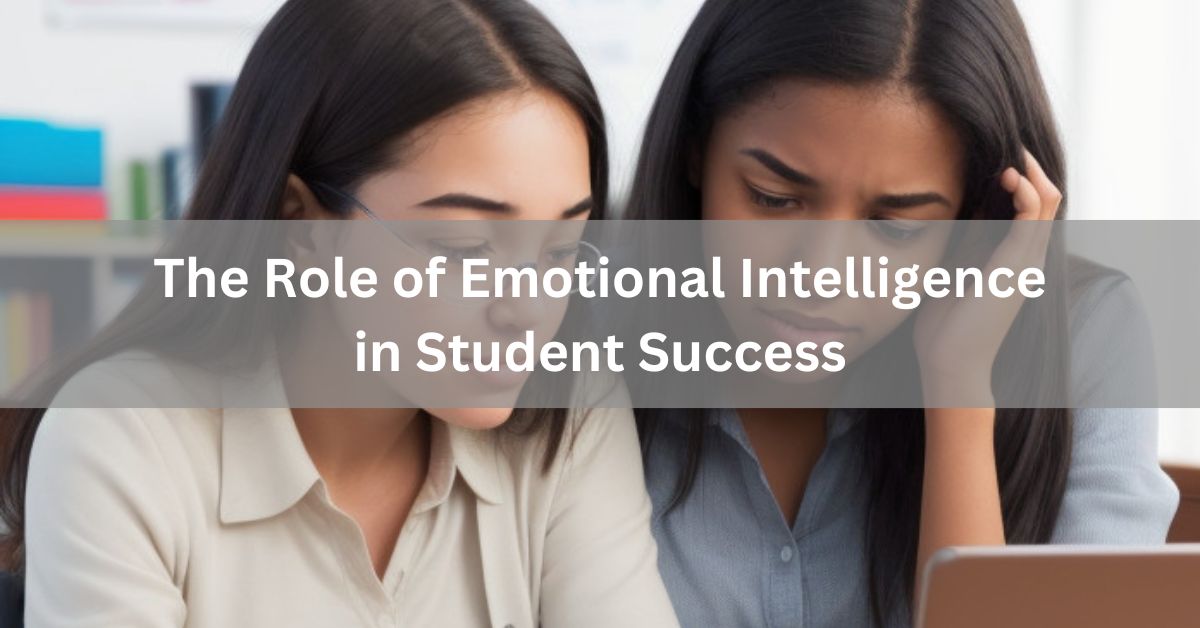In the pursuit of academic excellence, students are often encouraged to focus solely on mastering curriculum material and enhancing their cognitive abilities. However, amidst the emphasis on intellectual prowess, the pivotal role of emotional intelligence (EI) in driving student success is frequently overlooked. Contrary to popular belief, success in academia extends beyond the mere accumulation of knowledge; it encompasses a holistic approach that integrates emotional awareness, self-regulation, empathy, and interpersonal skills. In this comprehensive exploration, we delve into the profound impact of emotional intelligence on student achievement and unveil strategies to harness its transformative potential.
Understanding Emotional Intelligence
Emotional intelligence, coined by psychologists Peter Salovey and John Mayer and popularized by Daniel Goleman, refers to the ability to recognize, understand, manage, and express emotions effectively. It encompasses four core domains:
1. Self-Awareness
Self-awareness entails the ability to recognize one’s emotions, strengths, weaknesses, values, and motivations. Students who possess a heightened sense of self-awareness are better equipped to navigate academic challenges, set realistic goals, and capitalize on their strengths.
2. Self-Regulation
Self-regulation involves managing one’s emotions, impulses, and behaviors in diverse situations. Students with strong self-regulation skills demonstrate resilience in the face of setbacks, maintain focus amidst distractions, and exhibit impulse control, thereby fostering academic persistence and achievement.
3. Social Awareness
Social awareness encompasses empathy, compassion, and the capacity to understand and respond to the emotions of others. Students who cultivate social awareness forge meaningful connections with peers and faculty, collaborate effectively in group settings, and foster a supportive learning environment conducive to academic growth.
4. Relationship Management
Relationship management involves establishing and nurturing positive relationships, resolving conflicts constructively, and communicating persuasively. Students adept in relationship management cultivate a robust support network, seek mentorship opportunities, and harness the power of teamwork to achieve shared academic goals.
The Impact of Emotional Intelligence on Student Success
Emotional intelligence serves as a cornerstone for student success across various academic domains, including:
1. Academic Performance
Students with high levels of emotional intelligence exhibit greater academic performance, as they possess the resilience to overcome academic challenges, maintain focus during study sessions, and adapt to evolving learning environments. By cultivating self-awareness and self-regulation, students optimize their study habits, manage time effectively, and maximize learning outcomes.
2. Classroom Engagement
Emotionally intelligent students actively engage in classroom discussions, demonstrate empathy towards peers, and contribute meaningfully to collaborative projects. Their ability to navigate social dynamics fosters a positive learning atmosphere, wherein diverse perspectives are valued, and intellectual curiosity thrives.
3. Leadership Development
Emotional intelligence serves as a cornerstone for effective leadership development, as it enables students to inspire, motivate, and influence others. By honing their relationship management skills, students emerge as empathetic leaders who prioritize team cohesion, foster innovation, and champion collective success.
4. Mental Health and Well-being
Emotional intelligence plays a pivotal role in safeguarding students‘ mental health and well-being, as it equips them with coping mechanisms to manage stress, anxiety, and academic pressure. By fostering self-awareness and self-compassion, students cultivate resilience, nurture a positive self-image, and prioritize self-care practices conducive to holistic well-being.
Strategies for Cultivating Emotional Intelligence in Students
To cultivate emotional intelligence among students, educators and institutions can implement the following strategies:
1. Incorporate Social-Emotional Learning (SEL) Curricula
Integrate SEL curricula into academic programs to foster emotional awareness, self-management, social skills, and responsible decision-making among students. SEL initiatives empower students with the tools to navigate interpersonal relationships, resolve conflicts amicably, and cultivate empathy and compassion.
2. Promote Mindfulness Practices
Encourage students to engage in mindfulness practices, such as meditation, deep breathing exercises, and guided imagery, to enhance self-awareness, reduce stress, and promote emotional regulation. Mindfulness interventions equip students with the cognitive flexibility to respond thoughtfully to academic challenges and setbacks.
3. Foster a Supportive Learning Environment
Create a supportive learning environment wherein students feel valued, respected, and empowered to express their thoughts and emotions openly. Cultivate a culture of empathy and inclusivity, wherein students from diverse backgrounds feel a sense of belonging and camaraderie.
4. Provide Mentoring and Counseling Services
Offer mentoring and counseling services to students to facilitate their socio-emotional development, address academic concerns, and navigate personal challenges. Mentorship programs pair students with faculty or peer mentors who provide guidance, encouragement, and constructive feedback.
Conclusion
In conclusion, emotional intelligence stands as a linchpin for student success, encompassing self-awareness, self-regulation, social awareness, and relationship management.
By prioritizing EI development, educators and institutions can empower students to excel academically, thrive in diverse learning environments, and cultivate lifelong skills essential for personal and professional fulfillment.
Let us embark on this transformative journey towards unlocking the full potential of student success through the power of emotional intelligence.
